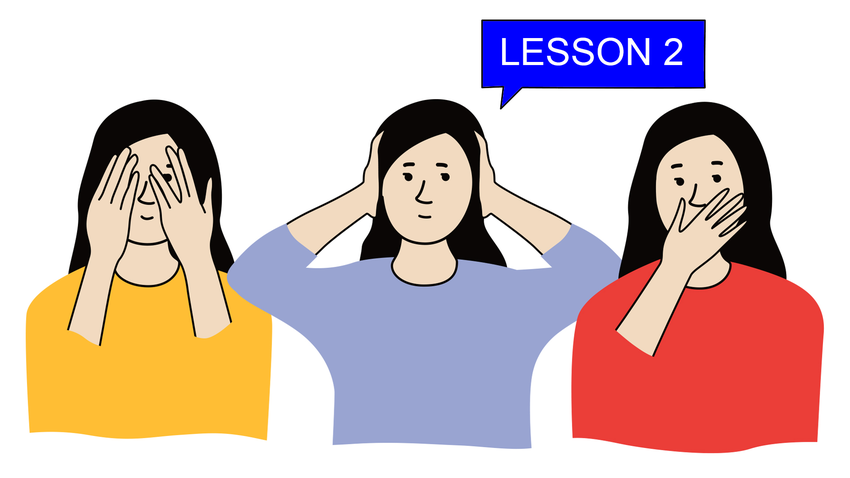
All four verbs (СМОТРЕТЬ, ВИДЕТЬ, СЛУШАТЬ, СЛЫШАТЬ) are imperfective verbs, with three of them using the same model as говорить to obtain new endings, while the remaining one mutates in the same way we observe with the verb читать.
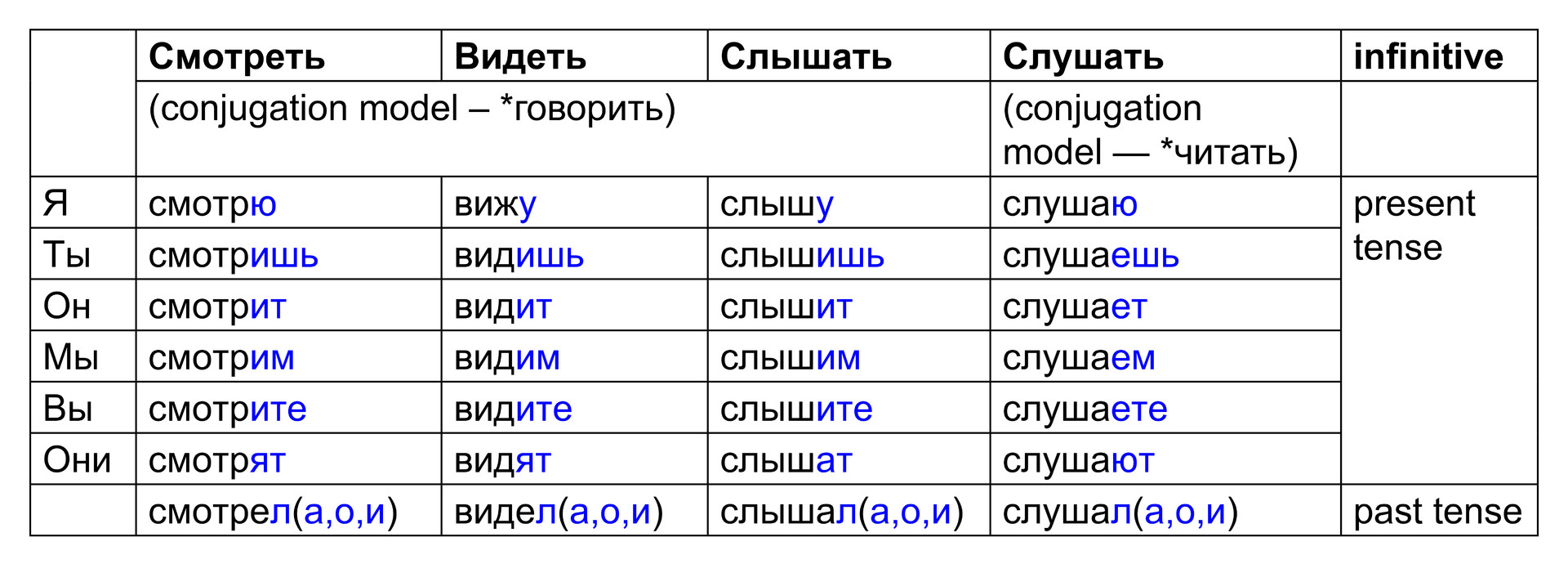
The verbs СМОТРЕТЬ and СЛУШАТЬ are used in situations when you deliberately act to receive information, dedicating time and effort to a given task. The actions of СМОТРЕТЬ and СЛУШАТЬ are controlled.

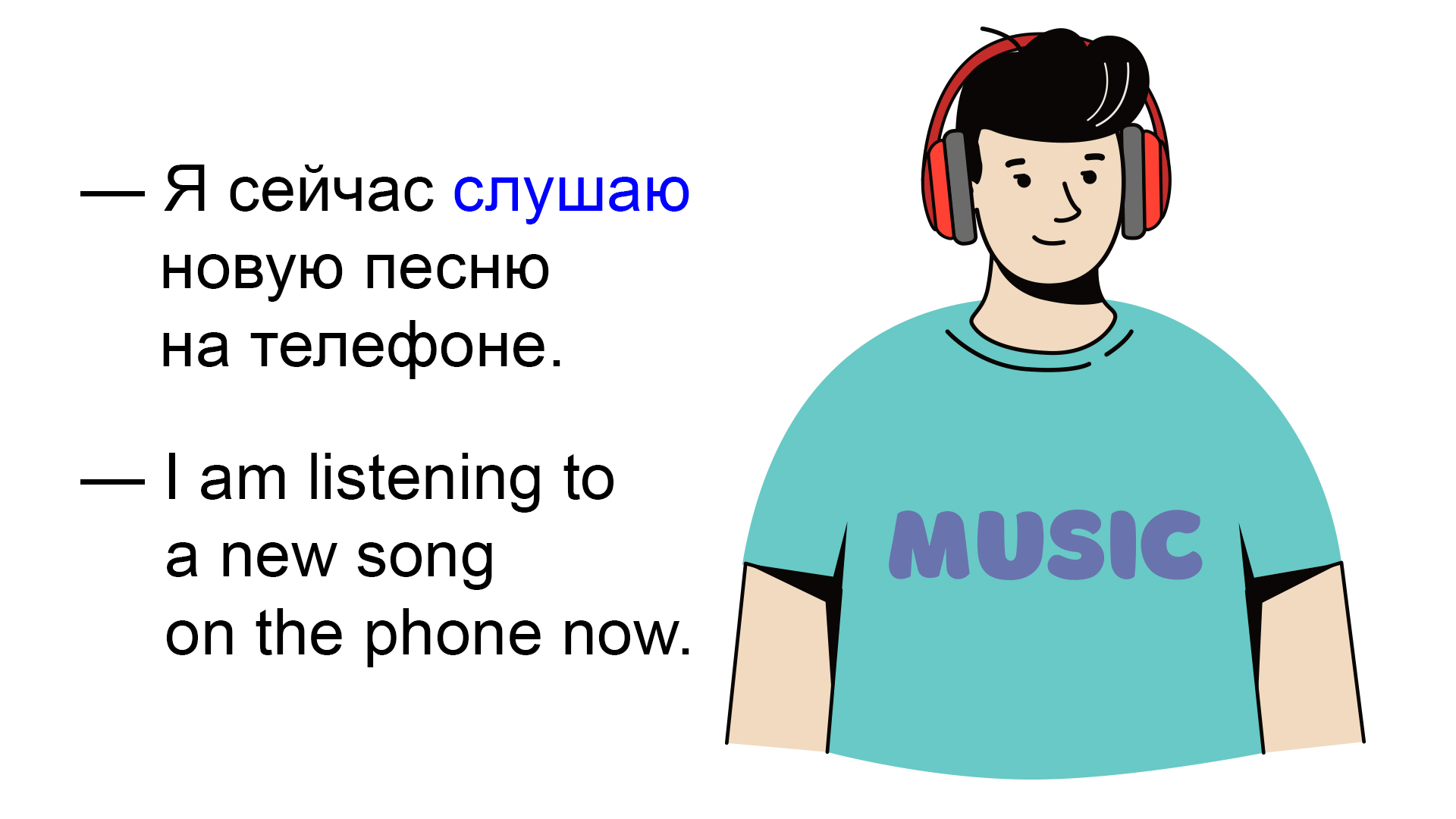
The verbs ВИДЕТЬ and СЛЫШАТЬ denote a physical ability and are used in situations when your eyes and ears become recipients of information without really choosing it, with intent not playing a role whatsoever.
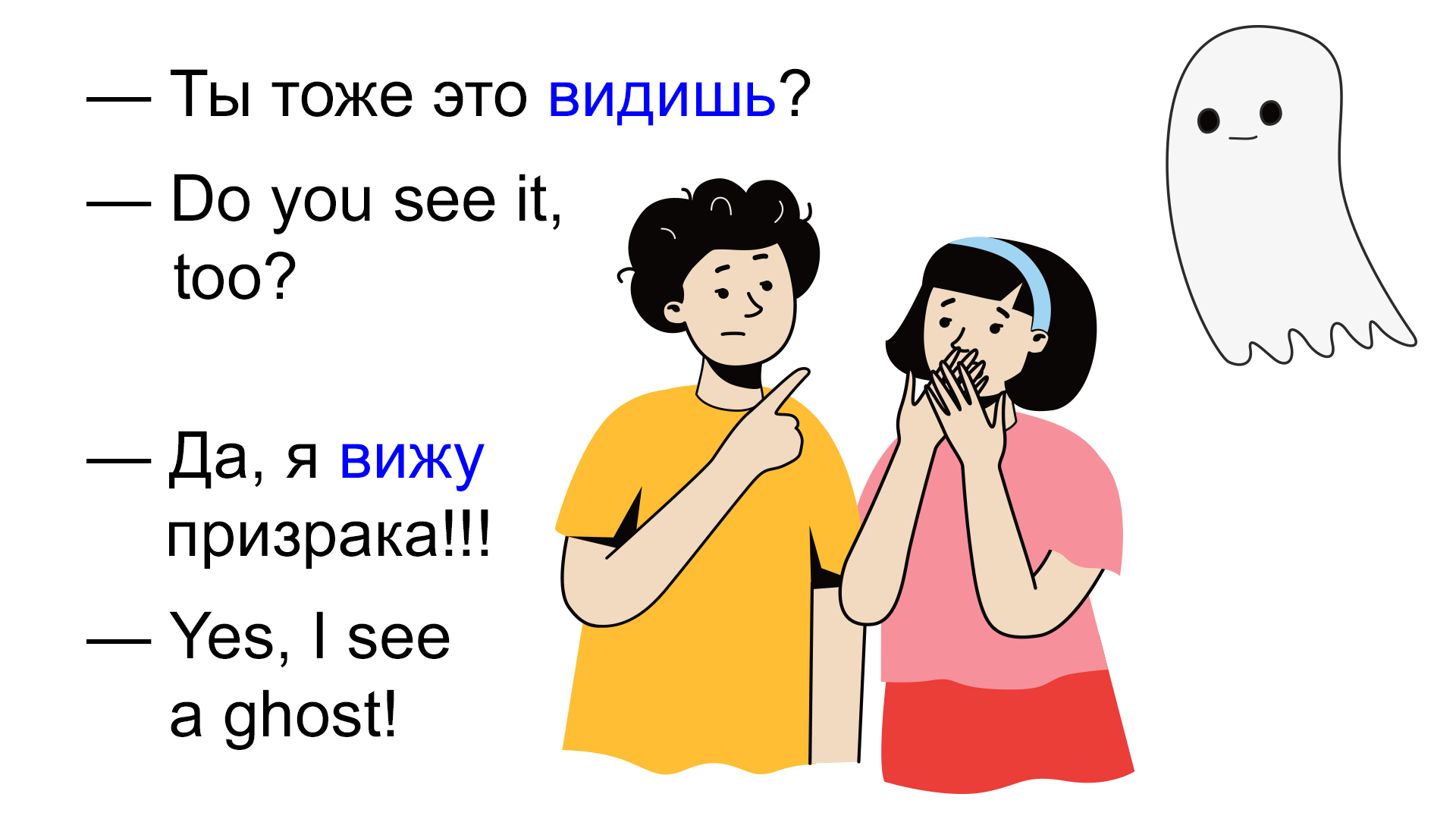
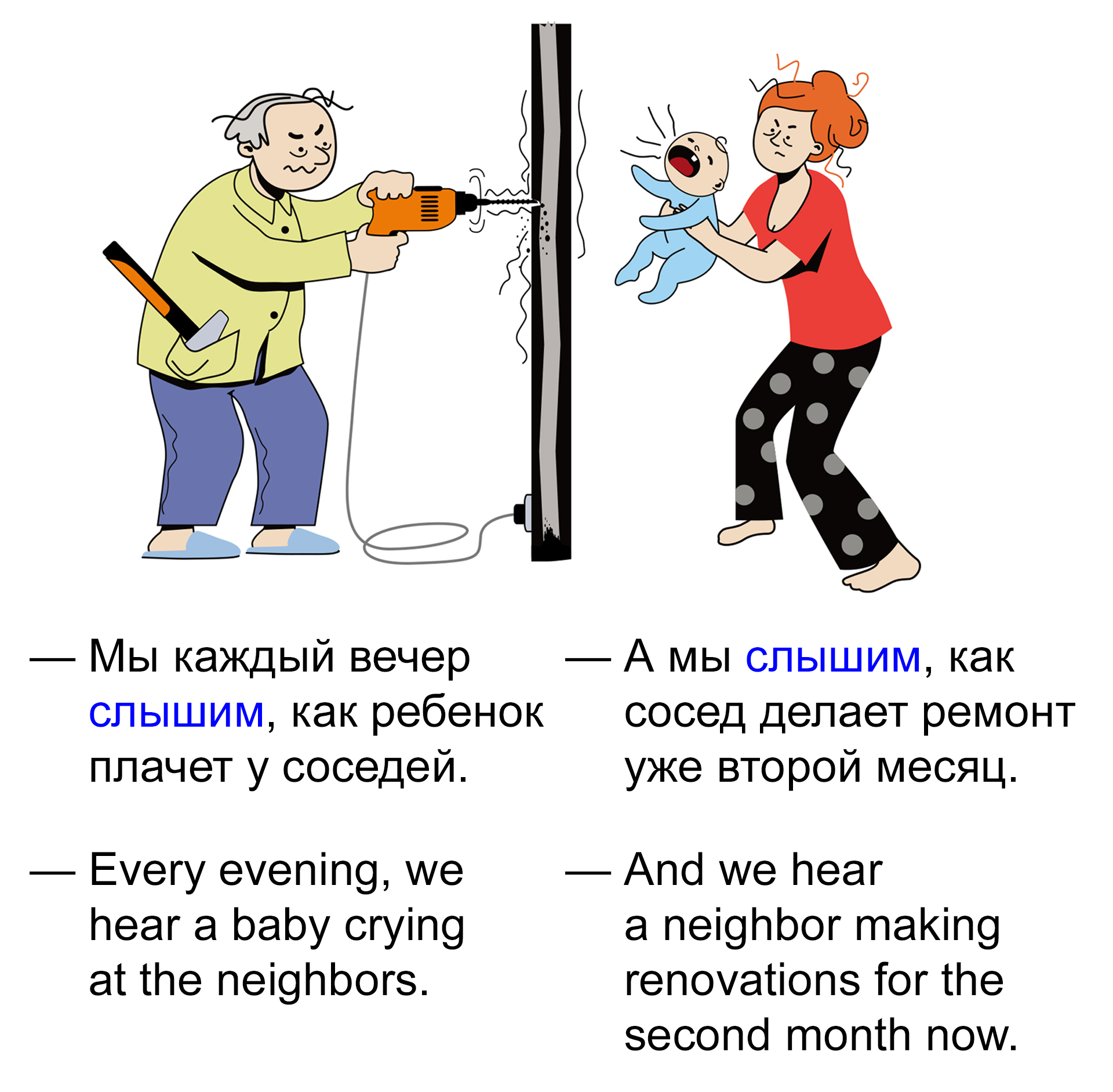
Let’s add a negative to the verbs - НЕ, and we’ll get the following changes:
а) я не смотрю, я не слушаю = I deliberately don’t want to receive the information
б) я не вижу, я не слышу = I can’t physically receive the information, there’s an obstacle
Sometimes, the difference between the verbs could seriously mess up your career! Imagine a work meeting on Zoom and your boss asks you something, but your internet connection is acting up. What do you respond with? You could say: “Простите, я не слышу!” - and your boss would simply repeat the question. But if you might also use the wrong form by mistake: “Простите, я не слушаю!” - surely, not the words you were looking for!
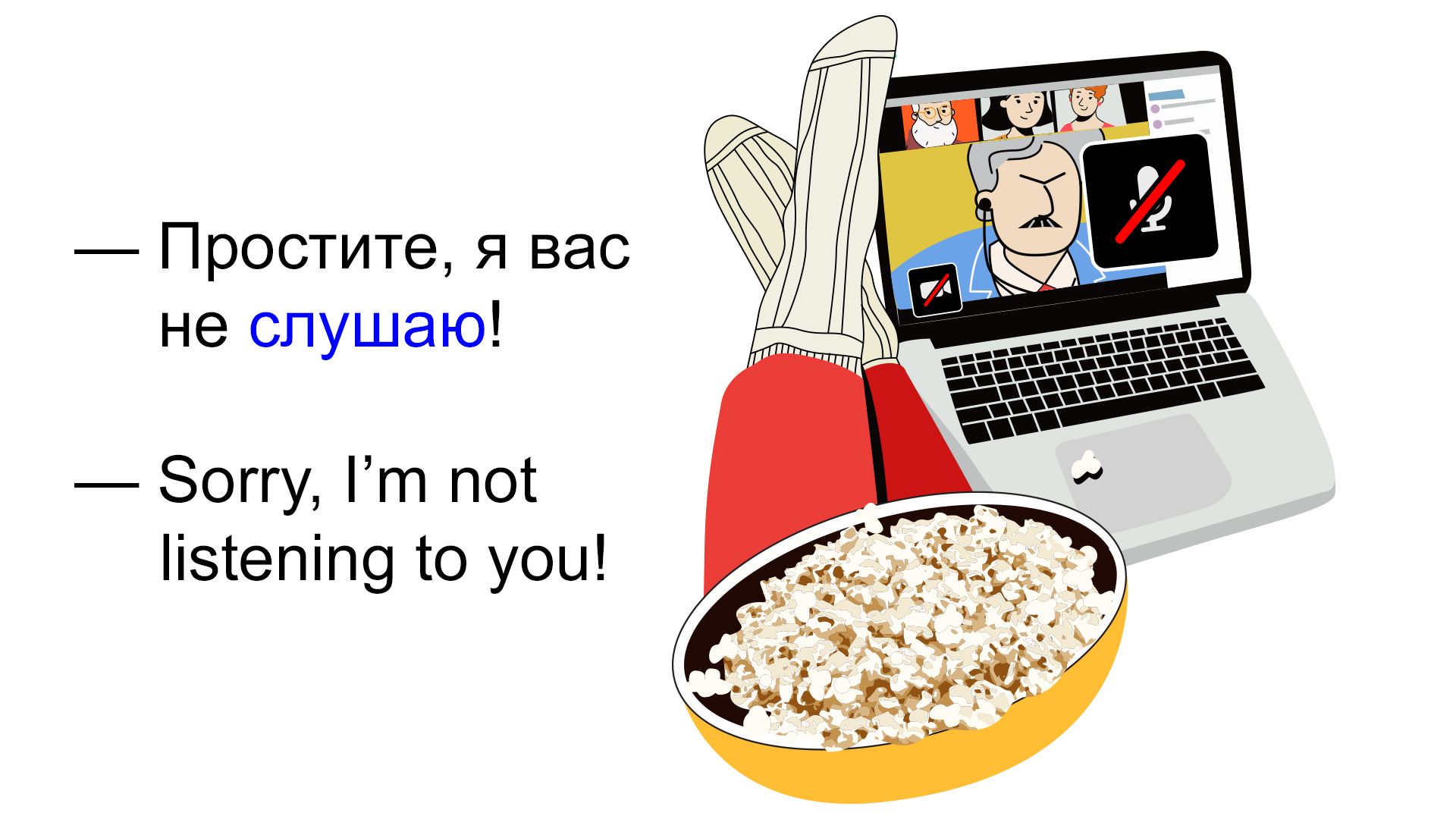
So, if you’d like to say how you spend your free time and what you like to do, use the verbs
СМОТРЕТЬ and СЛУШАТЬ:
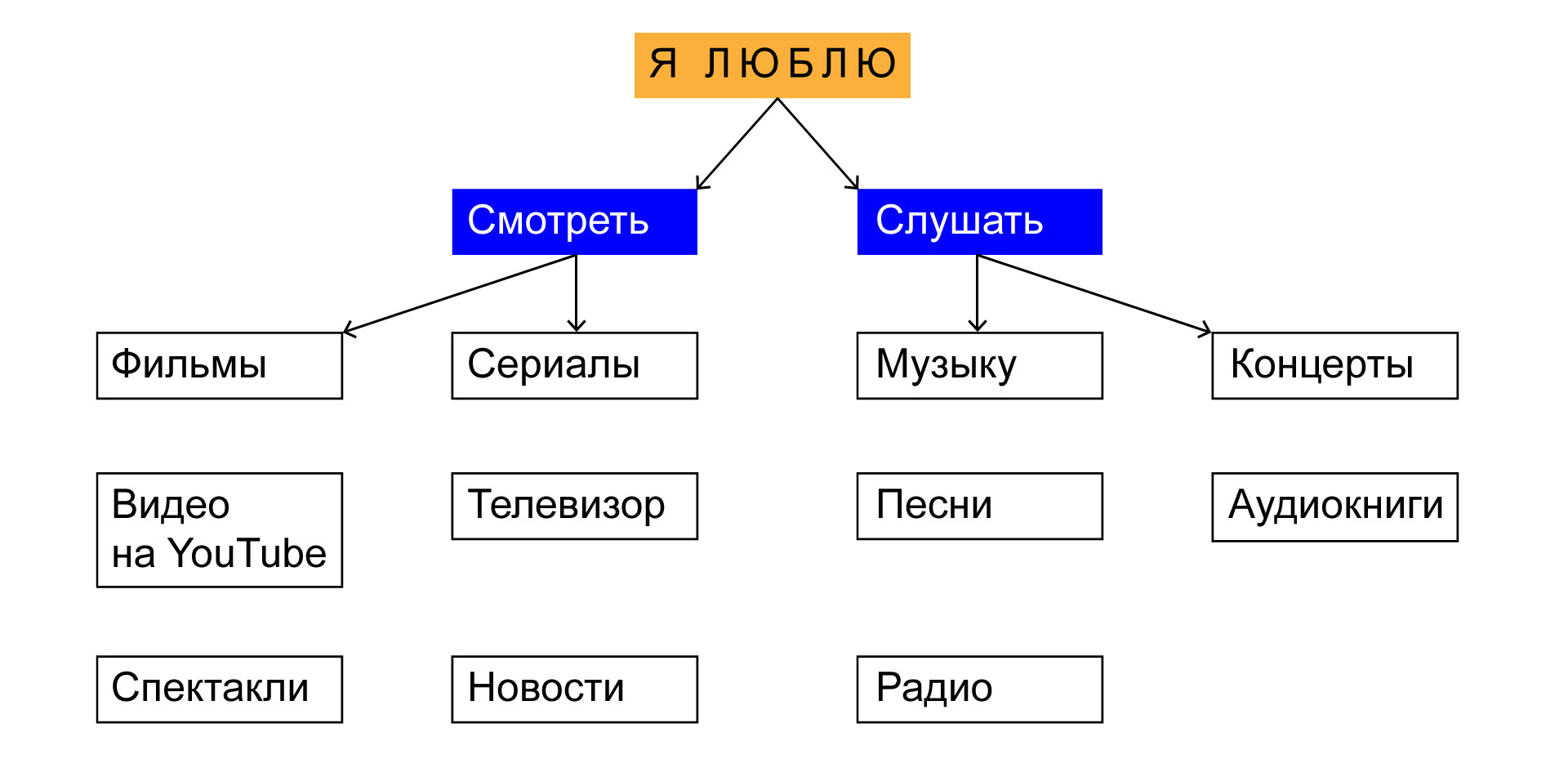
For example:Я люблю смотреть телевизор и слушать музыку каждый вечер. Папа всегда смотрит новости и слушает радио. А моя мама часто смотрит спектакли и слушает концерты. А мой брат в свободное время смотрит видео на YouTube и слушает аудиокниги.
(I like to watch TV and listen to music every evening. My father always watches the news and listens to the radio. My mother often watches performances and listens to concerts. And my brother watches YouTube and listens to audiobooks in his free time.)
If you’re describing the situations that you’re observing (or have observed in the past), if you’re talking about what you see in front of you, or what sounds you’re hearing, then you should always use the verbs ВИДЕТЬ and СЛЫШАТЬ.
For example:Мы видим весёлую собаку во дворе и слышим, как она гавкает!
(We see a happy dog in the yard and hear how it barks!)
If using any of Russia Beyond's content, partly or in full, always provide an active hyperlink to the original material.
Subscribe
to our newsletter!
Get the week's best stories straight to your inbox